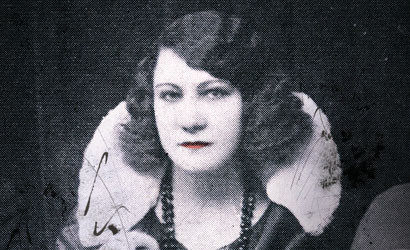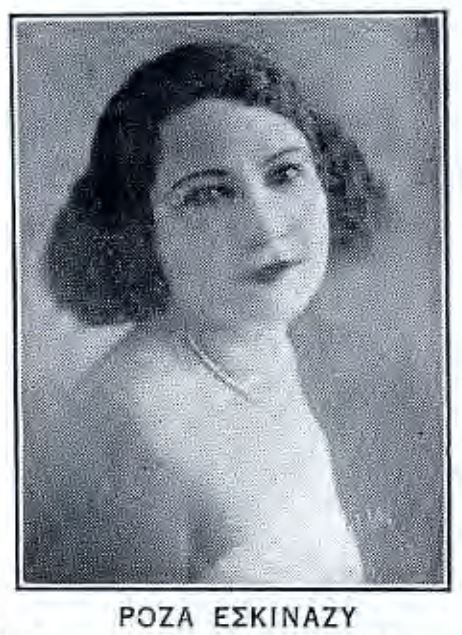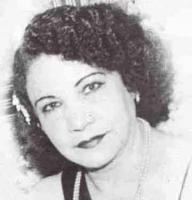Ρόζα Εσκενάζυ
Настоящее имя: Ρόζα Εσκενάζυ
Об исполнителе:
Roza Eskenazi (mid-1890s – 2 December 1980) was a famous Jewish-Greek singer of rebetiko and Greek folk music born in Constantinople, whose recording and stage career extended from the late 1920s into the 1970s. She was born in late 19th century in Constantinople, as Sara Skinazi, to Jewish family, originated from Spain. At a young age, Roza has emigrated from Constantinople to Thessaloniki, which was occupied by the Ottoman Empire, and started performing as a dancer in local clubs and cafés. Roza's rise to fame began at the late 1920's, after she was discovered at a club in Pireaus by composer and director of Colombia Records in Greece, Παναγιώτης Τούντας. At the height of her career, during the 1930's Roza recorded 40 songs, in different musical styles (Rebetiko, Greek and Turkish folk songs, Island songs, etc.) each year, and performed not only in Greece, but in Turkey, Albania, Egypt and the Balkan nations. During the German and Italian occupation of Greece, Roza kept performing in Athens, while using her connections to assist the Greek resistance, as well as the Jewish community of Athens. She was eventually exposed and arrested by the Germans, but avoided being sent north to the concentration camps, thanks to her relationship with a senior German officer. After World War II, during the 1950's, due to the declining of classic Rebetiko (Smyrneiko - "the song of Smyrna") in Greece, Roza embarked on tours both in Turkey and in the U.S. Later, during the 1960's, Roza made new recordings of several of her old songs, and in the 1970's, after the fall of the colonel's regime in Greece, and the following increase in Rebetiko's popularity amongst Greek youths, her career regained momentum - mostly thanks to new performance of her songs by young popular Greek artists, such as Χάρις Αλεξίου and Γιώργος Νταλάρας. Roza gave her last performance in September 1977, when she was 80 years old. In the twilight of her days she suffered from Alzheimer's disease, before her death on 2/12/1980, at a private clinic in Athens. She left after her a son and 3 grandchildren and was buried in a cemetery at the village of Stomio, in the gulf of Corinth. Roza Eskenazi will be remembered for posterity for the unique interpretations she gave to her songs, greatly influenced by her multi-cultural background
Альтернативные названия:
Вариации названий:
Δ. Γεωργιάδης
Μάρκος Βαμβακάρης
Singles & EPs Shellac 1946 Greece
10", 78 RPM


